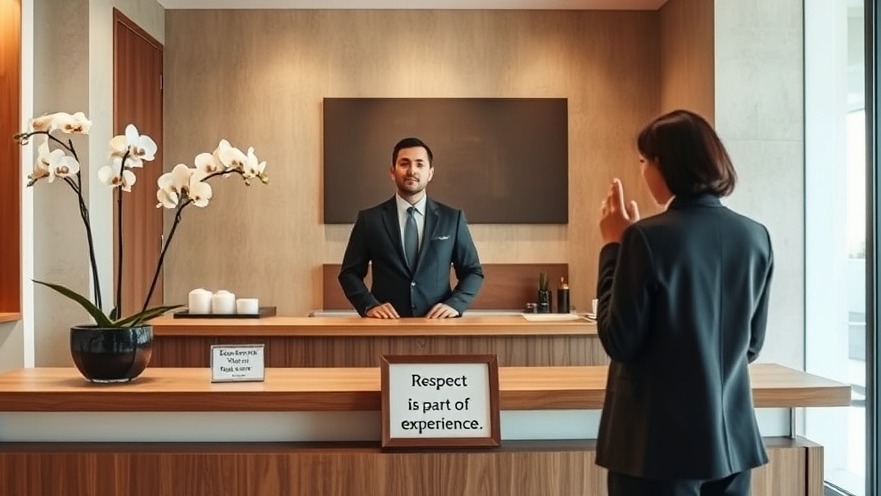
A Quiet Struggle Behind the Calm
Picture this: a massage therapist walks out of a treatment room, shoulders heavy — not from the physical work, but from an unsettling comment a client made.
At the front desk, an associate tries to steady their voice while a frustrated guest raises it louder and louder. These moments, though hidden from the serene spa atmosphere guests see, shape the true health of your business.
For spa owners and managers, the question isn’t just how to create beautiful spaces or offer exceptional treatments. The deeper challenge is this: How do we ensure our teams feel as safe, supported, and cared for as the clients who walk through our doors?
Research from Harvard’s Amy Edmondson shows that psychological safety — the belief you can speak up without fear of embarrassment or retaliation — is the single biggest factor in team success.
For therapists and front desk staff, where emotional labor is constant and boundaries can be tested daily, this safety isn’t optional. It’s essential.
As one spa director put it during a recent leadership roundtable: “If my team doesn’t feel safe, no amount of lavender oil or soft lighting will create the calm we promise our guests.”
Why Emotional Safety is the Spa Industry’s Hidden Currency
Spas thrive on trust. Guests trust therapists with their bodies and their stories, and they trust the front desk to guide them into calm.
But that trust must start internally. If your staff doesn’t feel safe, respected, and supported, it shows — in retention rates, in service quality, and ultimately in guest satisfaction.
Since the pandemic, frontline employees across service and hospitality industries have reported unprecedented levels of customer aggression and burnout.
More than half say they’ve experienced verbal abuse from clients in the last year alone. For an industry built on peace and renewal, the contrast is striking.
An emotionally safe workplace isn’t about shielding staff from every difficult situation. It’s about building confidence that when challenges arise, they won’t face them alone — leadership will be there, backing them up.

Breaking Free from “The Customer Is Always Right”
For decades, the golden rule in hospitality was simple: the customer is always right. But spa leaders are discovering that protecting staff sometimes means rewriting that rule.
A front desk manager shared: “We used to bend over backwards for difficult guests, even when they crossed lines with staff. Now we’re clear — respect has to be mutual. Our therapists’ wellbeing comes before keeping an abusive client happy.”
That pivot — from blind guest loyalty to balanced accountability — has become a turning point across forward-thinking spas.
Policies are being posted at reception desks and on websites, making it crystal clear: inappropriate client behavior will not be tolerated.
And it doesn’t stop there. Many spas are rethinking scheduling, using platforms like Boulevard or Mangomint to build in recovery breaks, prevent double-booking, and protect against unrealistic workloads.
These aren’t just efficiency measures. They’re visible proof that management values staff as people, not just service providers.
Strategies That Transform Culture
Put Boundaries in Writing
A clearly posted guest conduct policy serves as both shield and compass. It tells clients where the line is, and it reassures staff that management is standing right behind them.
Practice the Art of De-Escalation
Training staff in how to respond when guests become difficult changes everything. Scripts and role-play sessions give therapists and front desk teams the confidence to stay calm under pressure. One spa owner shared: “We practice scenarios during morning huddles. When the real thing happens, no one is left guessing.”
Rethink Scheduling as Self-Care
Sophisticated booking systems now let managers insert mandatory buffer times, monitor time cards, and limit high-load schedules. These tools aren’t just about logistics — they’re about preventing burnout and keeping therapists energized and present.
Listen Loudly, Act Boldly
Collecting staff feedback is important, but acting on it is where the magic happens. Anonymous surveys, one-on-one check-ins, and sharing back changes show staff that their voices matter. The more leaders close the loop, the safer people feel.
Borrow From Proven Frameworks
Timothy R. Clark’s 4 Stages of Psychological Safety offers a roadmap: Inclusion, Learner, Contributor, Challenger.
Pair that with OSHA’s workplace safety elements — commitment, analysis, controls, training, recordkeeping — and you have both cultural and compliance guardrails.

What Sets Resilient Spas Apart
Look at the spas where staff stay year after year, where client reviews glow, and where the atmosphere feels different the moment you walk in. They all have something in common: teams that feel safe speaking up.
One therapist put it bluntly on a public forum: “You’re within your rights to tell the front desk to block a client who made you uncomfortable. If management doesn’t support that, it’s not worth staying.”
That one sentence captures the difference between spas with constant turnover and spas with loyal, motivated teams. Staff who feel safe bring energy and joy to their work. Guests sense it instantly. Emotional safety doesn’t just protect people — it strengthens your brand.
Action Steps You Can Put in Place Tomorrow
Display your boundaries. Post your guest conduct policy at the front desk and include it in booking confirmations.
Role-play the tough stuff. Practice de-escalation phrases until they roll off the tongue.
Build in buffers. Use your scheduling software to enforce breaks and recovery time.
Open the feedback channel. Create a way for staff to share concerns anonymously — then respond visibly.
Debrief and follow through. Every incident deserves closure. Don’t leave your team wondering what happened next.
Each of these small shifts adds up to a workplace where staff know they matter — not just as service providers, but as people.
Conclusion: Leading With Safety, Serving With Strength
At the end of the day, the wellness you offer guests can only be as strong as the wellness your team experiences. Therapists and front desk staff aren’t simply employees; they’re the heartbeat of your brand.
When they feel emotionally safe, they show up with creativity, warmth, and care — and your clients feel the difference.
The takeaways are clear: protect your people with visible policies, equip them with practical tools, and show through actions — not just words — that you’ve got their backs.
As one spa owner said: “If my team feels safe, everything else flows — client satisfaction, retention, even revenue.”
So here’s the invitation: take one step this week. Post your policy, build a buffer into schedules, or start a new feedback channel.
These aren’t just operational fixes — they’re cultural signals that say, “You belong, you are valued, and you are safe here.”
When your staff feels safe, your spa isn’t just a place for treatments. It becomes what it was always meant to be: a sanctuary of healing for everyone who walks through its doors — clients and staff alike.
 Add Row
Add Row  Add
Add 




Write A Comment